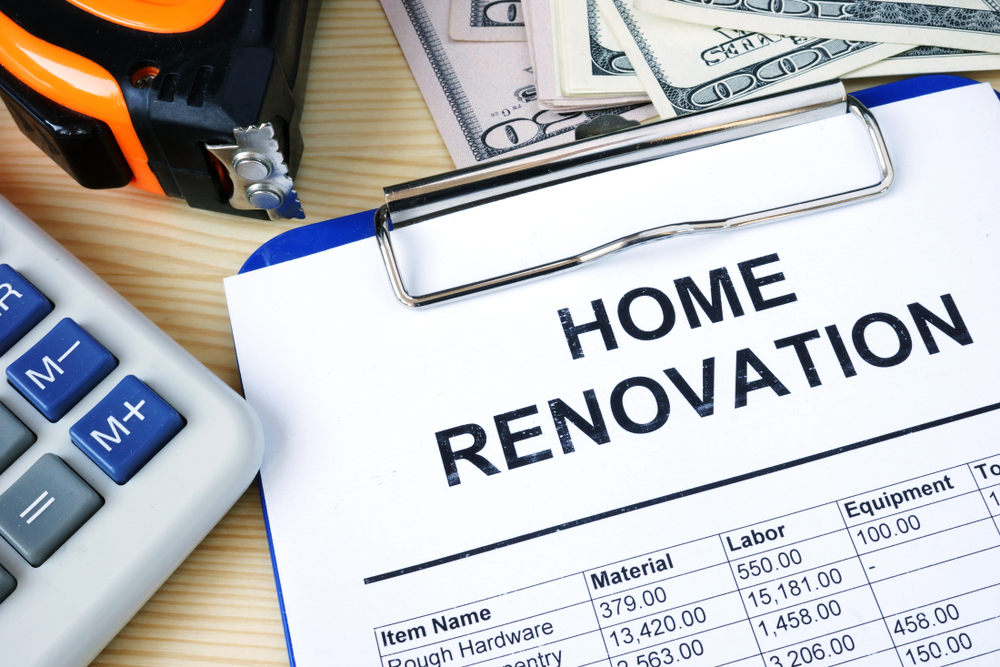How to Budget for Your Home Renovation
Designing a budget for your home renovation can be challenging, especially for first-time homeowners. The process requires detailed research and careful planning, from determining the type of costs to be included in your budget to what items need to be changed. As a homeowner looking to give your apartment a facelift, this article discusses all you need to know about how to budget for your home renovation.

Determine Your Top Renovation Needs
The easiest way to create a budget for your renovation is by deciding your top renovation priorities. You intend to renovate your home because you are not satisfied with the present condition of your apartment. You may want more space in your kitchen, or you intend to change the tiles in your bathroom. Whatever your reason for embarking on a renovation, write down and prioritize your needs. Avoid throwing out all the items in your home just because you desire new ones. You can keep older items, like furnaces, lighting fixtures, and appliances, which are still in good working condition.
Renovation processes like adding a bigger kitchen island and replacing old plumbing should be on top of your renovation list. Avoid changing your kitchen counters if you intend to change your floor plan or upgrade your cabinet later. Prioritizing your renovation needs to save you money and time in the long run. Keep your objectives in mind and follow them to the letter to avoid dealing with minor projects that can come later.
Develop a Concise Renovation Plan with Cost Estimates
After your top renovation needs, the next step is to create a concise plan that includes the estimated costs for renovation. That will allow you to create a renovation budget that communicates in clear terms to your contractors what you aim to achieve. Design a spreadsheet that contains tables featuring aspects of the project and the projected cost for materials and labor. Use popular resources like HomeAdvisor, to build your cost estimates for architects, handymen, engineers, and plumbers. Labor costs generally account for 25 to 35 percent of a renovation budget. Additionally:
- Determine the living expenses you are likely to incur during the project. Determine the cost of living without a fully functional kitchen and staying outside your home during the project. Include the costs in your spreadsheet.
- Consider the amount you need to spend on fixtures and finishes and include them in your spreadsheet. Include items like tiles, knobs, paints, flooring, faucets, and any other item you require. Don’t forget to add shipping costs and taxes to your projected materials estimates.
- Include the appliances you want and the projected amounts you need to spend on them. Add the costs for installation, delivery, and how you intend to dispose of unwanted appliances.
If your plan is concise and detailed enough, your communications with contractors will focus on time estimates and labor costs.
Funding Your Renovation Budget
Every budget without a funding plan holds little to no value. Funding is central to budget planning and includes careful consideration of your present finance. If your current finances are inadequate for your projected costs, you must consider borrowing funds for the project. Home equity line of credit (HELOC) and home equity loans are popular options available to homeowners. These loan plans allow homeowners to borrow funds against their homes. You can also use credit cards to fund your renovation plans. That is a great alternative for persons with excellent credit scores. You can access loans via SoFi, an online personal finance company offering personal mortgages and loans to high-earning people.
However, if you have a high debt profile and are struggling to get a good credit score, you can focus on repaying your debt before worrying about renovations. It is not a smart decision to go into debt because of home renovation. Renovation isn’t worth borrowing what you presently own of your home (equity) only to pay back with interest.
Request for Bids from Several Contractors
After prioritizing your renovation needs and how to fund your budget, it is time to search for contractors to help you actualize your renovation needs. Search for local firms with excellent reviews and request bids. Obtain bids from at least three companies to allow you to compare their costs. When selecting your contractor, endeavor to invite them for interviews and examine their references. Ensure to be concise about your expectations. Your contractor will be more open to discussing extra expenses, project changes, and time delays if they are satisfied with your budget. Discuss how you intend to manage unforeseen challenges likely to impact the project’s budget.
If you are not satisfied with the bid of a particular contractor, don’t hesitate to listen to others. Employ competing bids in negotiating with your chosen contractor. Lower your costs if your budget does not match your contractor’s estimates. Eliminate items you consider less important.
Execute Some of the Works Yourself
You can cut costs by doing some of the renovation work yourself. Several works do not need professional skills to execute. They only require determination, grit, and strength. Works like lifting old carpets and ripping out the old kitchen and bathroom can be done alone. You can also carry out simple interior renovations like installing crown molding, and ceiling fans, replacing the front doormat, and installing your bathroom floor. Most professional room painting services can cost as much as $300 or more. You can paint your room by yourself, eliminating the cost from your budget.

Have a Contingency Budget
Regardless of how detailed and concise your budget is, unforeseen costs and estimates are likely. That is because, during the renovation, different items can pop up that you never anticipated. Therefore, it is essential to have a contingency budget in place to cater to these costs. Your contingency budget should be around 5 to 10 percent of your total renovation budget. The budget will cushion any difficulty you may encounter during your renovation.
Home renovation can undoubtedly be capital-intensive. That is why having a plan is important to see how you can save costs on the project. You will also require professionals that can get the job at a decent price. We are known to provide the most affordable home renovation services in New York City. We have over 12 years of experience in renovation, and our services encompass the five boroughs of New York and Bergen County, in New Jersey. Contact us today for your free estimate!




